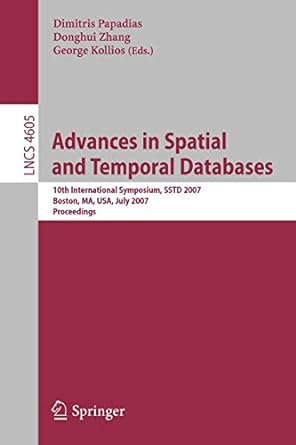Question
Consider strings that can be split so that their first half is the same as their second half (ignoring blanks, punctuation, and case). For example,
Consider strings that can be split so that their first half is the same as their second half (ignoring blanks, punctuation, and case). For example, the string "booboo" can be split into "boo" and "boo". Another example is "hello, hello". After ignoring blanks and the comma, the two halves of the string are the same. However, the string "rattan" has unequal halves, as does the string "abcab". Add a method public static boolean check(String s) to the class Array Queue (your function must be in the file ArrayQueue.java) that returns true when s has the property above and false otherwise. You must use methods from QueueInterface.java and ArrayQueue.java. Do not use stacks or recursion. // Much appreciate if you also run a test case for it.
QueueInterface.Java
public interface QueueInterface
/** Adds a new entry to the back of this queue.
@param newEntry an object to be added */
public void enqueue(T newEntry);
/** Removes and returns the entry at the front of this queue.@return either the object at the front of the queue or, if the queue is empty before the operation, null */
public T dequeue();
/** Retrieves the entry at the front of this queue.
@return either the object at the front of the queue or, if thequeue is empty, null */
public T getFront();
/** Detects whether this queue is empty.
@return true if the queue is empty, or false otherwise */
public boolean isEmpty();
/** Removes all entries from this queue. */
public void clear();
}
// end QueueInterface
ArrayQueue.Java
public class ArrayQueue
private T[] queue; // circular array of queue entries and one unusedlocation
private int frontIndex;
private int backIndex;
private static final int DEFAULT_INITIAL_CAPACITY = 50;
public ArrayQueue() {
this(DEFAULT_INITIAL_CAPACITY);
} // end default constructor
public ArrayQueue(int initialCapacity) {
// the cast is safe because the new array contains null entries@SuppressWarnings("unchecked")
T[] tempQueue = (T[]) new Object[initialCapacity + 1];
queue = tempQueue;frontIndex = 0;
backIndex = initialCapacity;
} // end constructor
public void enqueue(T newEntry) {
ensureCapacity();
backIndex = (backIndex + 1) % queue.length;
queue[backIndex] = newEntry;
} // end enqueue
public T getFront(){
T front = null;
if (!isEmpty())
front = queue[frontIndex];
return front;
} // end getFront
public T dequeue() {
T front = null;
if (!isEmpty()) {
front = queue[frontIndex];
queue[frontIndex] = null;
frontIndex = (frontIndex + 1) % queue.length;}
// end if return front;
} // end dequeue
private void ensureCapacity() {
if (frontIndex == ((backIndex + 2) % queue.length)) { // if array is
full,
T[] oldQueue = queue;
int oldSize = oldQueue.length;
@SuppressWarnings("unchecked")
T[] tempQueue = (T[]) new Object[2 * oldSize];
queue = tempQueue;
for (int index = 0; index < oldSize - 1; index++) {
queue[index] = oldQueue[frontIndex];
frontIndex = (frontIndex + 1) % oldSize;
} // end for
frontIndex = 0;
backIndex = oldSize - 2;}
// end if
} // end ensureCapacity
public boolean isEmpty() {
return frontIndex == ((backIndex + 1) % queue.length);
} // end isEmpty
public void clear() {
if(!isEmpty()) {
for (int index = frontIndex; index != backIndex; index =
(index+1)%queue.length)
queue[index] = null;
queue[backIndex] = null;
}
frontIndex = 0;
backIndex = queue.length - 1;
}
} // end ArrayQueue
Step by Step Solution
There are 3 Steps involved in it
Step: 1

Get Instant Access to Expert-Tailored Solutions
See step-by-step solutions with expert insights and AI powered tools for academic success
Step: 2

Step: 3

Ace Your Homework with AI
Get the answers you need in no time with our AI-driven, step-by-step assistance
Get Started


